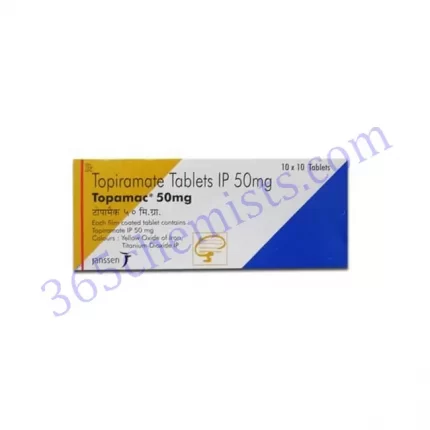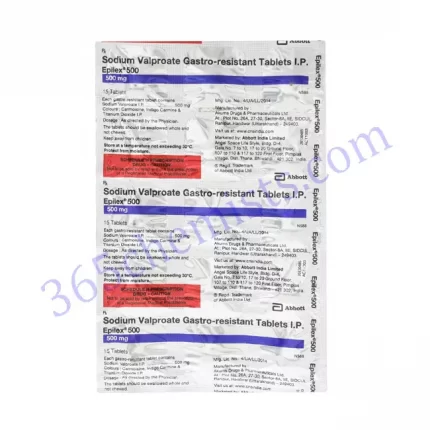Introduction to Celetoin 100mg Tablet
A prescription drug called Celetoin 100 mg Tablet (Phenytoin 100mg) is used to treat different kinds of seizures, such as tonic-clonic (grand mal) seizures and complex partial seizures. It is a member of the class of drugs referred to as anticonvulsants or anti-seizure drugs. Celetoin 100mg Tablet functions by regulating brain electrical activity, thereby preventing excessive and irregular neuronal firing that can cause seizures.
How to Use Celetoin 100mg Tablet
- Take Celetoin 100mg Tablet exactly as directed by your healthcare professional. Your age, weight, medical condition, and treatment response may all affect the dosage. Without first consulting your doctor, never change the medication’s dosage or stop taking it.
- Administration: Drink some water and swallow the tablet whole. If not instructed to do so by your healthcare provider, do not chew, crush, or break the tablet.
- Timing: To maintain a steady level of the medication in your body, it’s crucial to take Celetoin 100mg Tablet at the same time(s) every day.
- Food Interactions: As directed by your doctor, take Celetoin 100mg Tablet with food or on an empty stomach. To maximise the absorption and effectiveness of the medication, it is crucial to follow a regular eating schedule.
Related Product
Celetoin 100mg Tablet
Celetoin ER 300mg Tablet
Precautions and Warnings for Celetoin 100mg Tablet
- Allergy: Let your doctor know if you have ever had an allergic reaction to phenytoin or any other anticonvulsant drug. Rash, itching, swelling, severe dizziness, or breathing difficulties are examples of allergic reactions.
- Liver and Kidney Function: Let your doctor know if you have ever had liver or kidney disease as it may require dosage adjustments. While taking Celetoin 100mg Tablet, liver and kidney function may need to be regularly monitored.
- Blood Disorders: The white blood cell, red blood cell, and platelet counts may be impacted by celetoin 100mg Tablet. To keep track of your blood cell counts while undergoing treatment, routine blood tests may be advised.
- Breastfeeding and Pregnancy: Let your doctor know if you are currently breastfeeding or planning a pregnancy. Celetoin 100 mg Tablet may pass into breast milk and pose potential risks to the growing foetus.
Common Side Effects of Celetoin 100mg Tablet
- When starting Celetoin 100mg Tablet, some people may experience mild to moderate nausea and vomiting. These side effects may be reduced by taking the medication with food or by breaking up the daily dose into several smaller doses.
- Celetoin 100mg Tablet can make you feel lightheaded and sleepy, which makes it difficult to focus or operate machinery. Avoid mental-demanding activities until you have a better understanding of how the medication affects you.
- Gingival Hyperplasia: Long-term use of Celetoin 100mg Tablet may result in gingival hyperplasia, or an overgrowth of gum tissue. To avoid or manage this side effect, it’s crucial to practise good oral hygiene and receive routine dental exams.
Possible Drug Interactions
- Celetoin 100mg Tablet may interact with other antiepileptic medications, possibly reducing their effectiveness or raising the possibility of adverse effects. All of the medications you are taking, including prescription, over-the-counter, and herbal supplements, should be disclosed to your healthcare provider.
- Warfarin: Warfarin, an anticoagulant medication used to prevent blood clotting, may interact with celetoin 100mg Tablet. Warfarin’s effectiveness may be affected by this interaction, which also raises the chance of bleeding. If you take both medications, regular monitoring of blood clotting parameters is crucial.
- Birth Control Pills: Celetoin 100mg Tablet might make hormonal contraceptives, like birth control pills, less effective. While taking Celetoin 100mg Tablet, it is advised to use additional or alternative contraceptive methods.
- Sedatives and Benzodiazepines: Taking Celetoin 100 mg Tablet at the same time as benzodiazepines or other sedatives may cause increased sedation and respiratory depression. If you take these medications together, your doctor may need to change the dosage or keep a close eye on you.
Important Safety Information
- Avoid or limit alcohol use while taking Celetoin 100 mg Tablet because it may intensify the sedative effects of the drug and impair your coordination and judgement.
- Celetoin 100 mg Tablet can make you feel lightheaded and sleepy, making it unsafe to drive or operate machinery. Until you understand how the medication affects you, refrain from performing tasks that call for mental alertness such as operating machinery or driving.
- Skin Sensitivity: While taking Celetoin 100mg Tablet, some people may experience increased sensitivity to natural or synthetic UV rays. When exposed to sunlight, use appropriate sun protection techniques like wearing protective clothing and applying sunscreen.
- Overdose: If you suspect an overdose, get medical help right away or call a poison control centre. Severe drowsiness, confusion, trouble breathing, and unconsciousness are all potential overdose symptoms.
Summary
An anticonvulsant drug commonly prescribed to treat seizures is celetoin 100mg Tablet (phenytoin 100mg). It functions by regulating brain electrical activity, which stops seizures from happening. It is crucial to adhere to your healthcare provider’s recommended dosage and instructions, as well as to let them know about any existing medical conditions or medications you are taking. Throughout treatment, blood levels and potential side effects must be regularly monitored. Consult with your healthcare provider for individualised guidance and support if you have any worries or inquiries about Celetoin 100mg Tablet.












